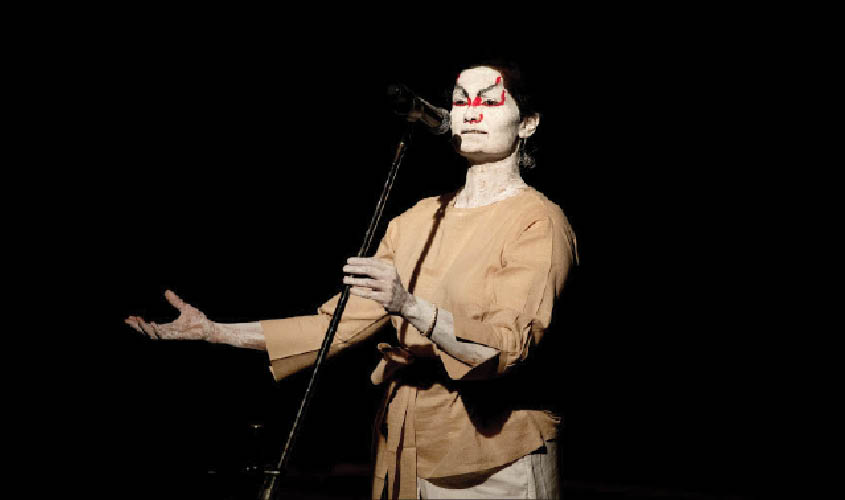Performance artist Meera George, whose works are mainly inspired by gender and caste issues, recently came up with an operatic piece, entitled Still I Rise. The title is taken from a Maya Angelou poem, and the piece itself is a celebration of “the unsung heroines” from Kerala, who stood up against patriarchy and caste hierarchy.
The performance took place at Delhi’s Alliance Française on 13 May, and it began with Meera arriving on the stage with her face painted white.
A sheet of paper, given to the audience before the play began, informed us about a 19th-century woman named Nangeli, who belonged to the Ezhava community in Kerala. This community required women to pay a “breast tax” in order to cover their breasts. Nangeli had cut off her breast to avoid paying the tax. The sacrifice of Nangeli, as well as that of the other two women protagonists of this piece, Thatri and Unniyarcha, was instrumental in bringing the progressive wave to Kerala. And it was their story that was enacted by Meera on the stage.
“This is a sequel to my previous performance work made in Japan. It was about the story of the abuse of Draupadi, set in Japanese classical theatre Kabuki. I believe that issues like gender bias and caste prejudice still exist in the present times. And I wanted to comment on them,” says Meera.
The artist further takes a dig at such social ills by incorporating largely male-dominated art forms—such as Kathakali, Kalaripayattu and Chavittu Nadakam—into her performance. Her makeup, too, attempts to challenge the patriarchal norms of Indian society. She uses white and red on her face. According to Meera, these colours are primarily used by men to portray strong emotions on stage.
Girls from the Protsahan India Foundation, an NGO which works towards protecting adolescent girls from child abuse, were also part of the performance. “Having them on the stage added so much value and weight to the performance. It was good to perform with only women,” says Meera.
The 20-minute performance ended with a dramatised recitation of Angelou’s poem “Still I Rise”. “Angelou inspires. She was a woman activist who faced racial discrimination for being black. She spoke about inequality beautifully,” says Meera on her decision to include the poem in her performance piece.
The curator of the show, Arshiya Lokhandwala, told Guardian 20, “I found that Meera’s work has the potential to be developed into an opera. She devised four acts which came together. It was interesting because I’d never worked with opera before. As she uses different art forms together, like Kathakali, Kabuki and Kalaripayattu, the opera comes together really well.”
‘Still I Rise’ was supported by the Shalini Passi Art Foundation

